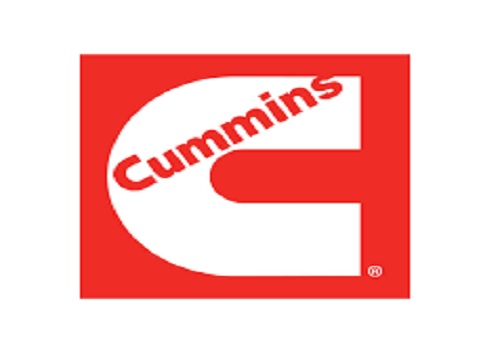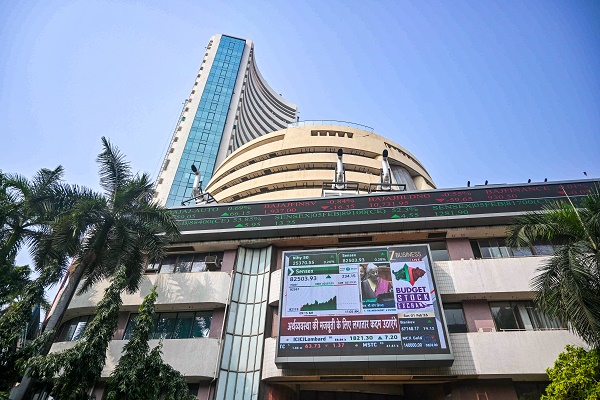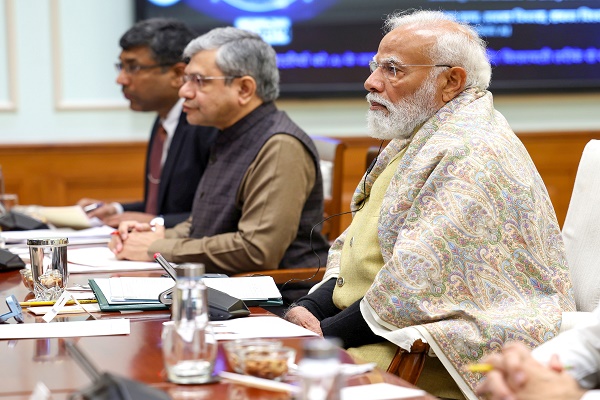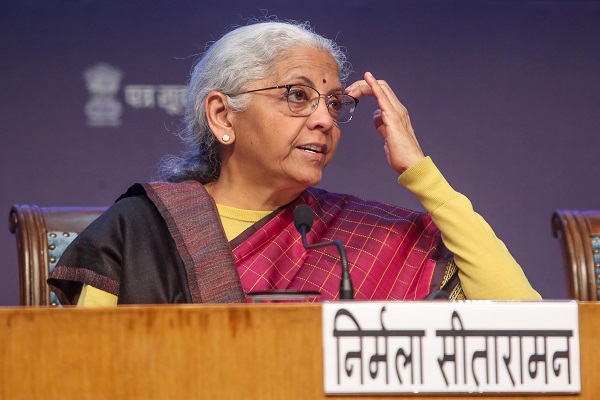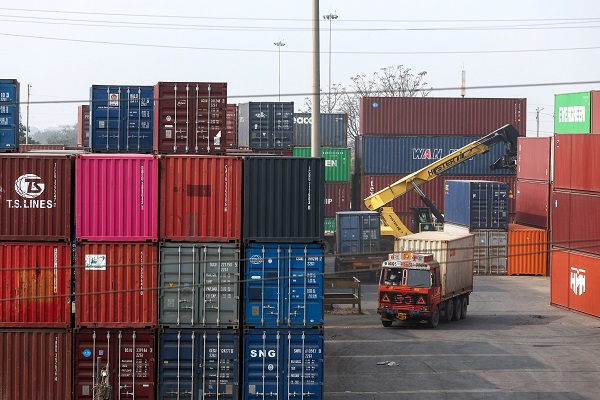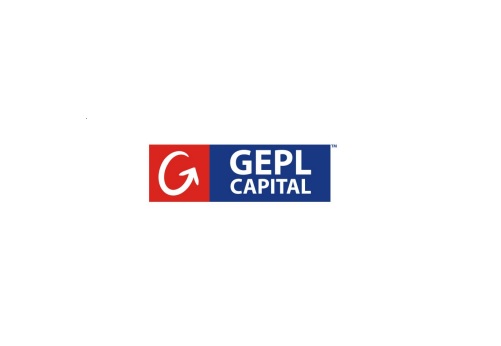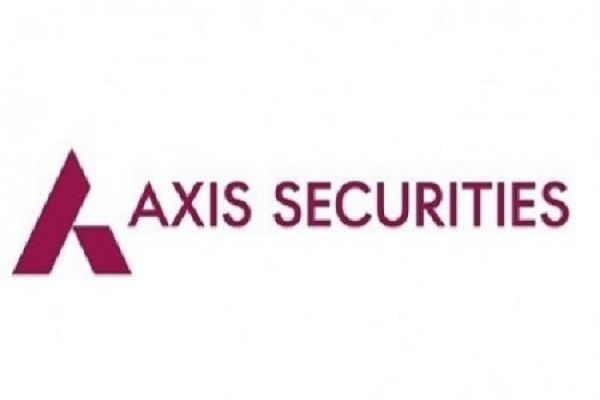Key gauges end volatile trade in green on Friday

Indian equity benchmarks managed to end higher in highly volatile trade on Friday led by gains in basic materials, oil and gas and energy stocks. The beginning was upbeat as traders took encouragement with report which claimed that the Emergency Credit Line Guarantee Scheme (ECLGS) launched by the government in 2020 to provide relief to MSMEs impacted by COVID-19 pandemic has saved 13.5 lakh firms from going bankrupt and consequently 1.5 crore jobs. The street were getting relief with private report stated that private equity investments hit a record high of $40.1 billion in 2021, an increase of over 15 per cent from the previous year, led by a $3.6 billion flow into Flipkart and $1.93 billion into Bundl Technologies. The strength in the markets was being supported as the finance ministry released monthly revenue deficit grant to 17 states totalling Rs 9,871 crore. So far, an amount of Rs 98,710 crore has been released to 17 states as post devolution revenue deficit grant in the current financial year
However, the headline indices were sharply off their respective day's highs and traded with marginal losses in afternoon deals, as caution prevailed among investors globally amid increasing cases of the Omicron variant of COVID-19. Traders turned anxious with India Ratings and Research’s statement that the Omicron variant spread will impact the January-March quarter GDP by 0.40 per cent and shave off 0.10 per cent from the FY22 growth, as many states resort to restrictions to limit infections. But, selling proved short-lived as key gauged bounced back into green terrain in late hour of trade, taking support from a senior government official said that the Omicron wave of coronavirus is unlikely to have much impact on India's economic growth, not more than of 5-10 basis points. Traders took note of report that amid fears that the new coronavirus variant may disrupt normal business activity, industry chamber CII pitched for coordinated actions by the Centre and state governments to minimize the impact of Omicron on the economy.
On the global front, European markets were trading mostly in red as traders remain cautious amid the rapid spread of the coronavirus Omicron variant in most countries. Asian markets ended mostly higher on Friday despite the broadly negative cues from Wall Street, with support from higher crude oil prices and as traders are picking up stocks at a bargain after the recent sell-off. Investors await the release of the U.S. Labor Department's closely-watched monthly jobs report out later in the day, which would give further indication on how soon the central bank may raise rates. Back home, on the sectoral front, sugar industry stocks were in focus as trade body AISTA demanded respective state governments to allow truck movement 24X7 to increase the pace of export with maximum quantities of exportable sugar getting lifted from Maharashtra and Karnataka putting pressure on logistics. Stocks related to hotel industry also were in watch with rating agency ICRA stating that the demand in the hotel industry will be curtailed in the fourth quarter this fiscal, at least in January 2022, as the fresh COVID-19 wave with the Omicron variant dampening sentiments.
Finally, the BSE Sensex rose 142.81 points or 0.24% to 59,744.65 and the CNX Nifty was up by 66.80 points or 0.38% to 17,812.70.
The BSE Sensex touched high and low of 60,130.18 and 59,401.44, respectively and there were 15 stocks advancing against 15 stocks declining on the index.
The broader indices ended in green; the BSE Mid cap index rose 0.54%, while Small cap index was up by 0.43%.
The top gaining sectoral indices on the BSE were Basic Materials up by 1.33%, Oil & Gas up by 1.14%, Energy up by 0.97%, Bankex up by 0.65% and FMCG up by 0.59%, while Capital Goods down by 0.78%, Telecom down by 0.45%, Consumer Durables down by 0.32%, Healthcare down by 0.32% and Auto down by 0.13% were the top losing indices on BSE.
The top gainers on the Sensex were Asian Paints up by 1.79%, TCS up by 1.26%, Nestle up by 1.23%, Ultratech Cement up by 1.18% and ICICI Bank up by 1.06%. On the flip side, Bajaj Finserv down by 1.39%, Mahindra & Mahindra down by 1.31%, Larsen & Toubro down by 1.06%, Bajaj Finance down by 1.00% and HDFC down by 0.98% were the top losers.
Meanwhile, amid a massive surge in COVID infections across the country, especially in the metro, a domestic rating agency -- India Ratings and Research in its latest report has said that the Omicron variant spread will impact the January-March quarter (Q4) Gross Domestic Product (GDP) by 0.40 per cent and shave off 0.10 per cent from the FY22 growth, as many states resort to restrictions to limit infections. It added that curbs in various forms such as reducing the capacity of market/market complexes and night/weekend curfews to check human mobility/contact have already started in several states, which are impacting economic activities. The surge in cases seen over the last fortnight will have an adverse impact on the fourth-quarter GDP and the growth will come at 5.7 per cent during the quarter, which is 0.40 per cent lower than the earlier estimate of 6.1 per cent.
For the entire FY22, the GDP is expected to clock a growth rate of 9.3 per cent, 0.10 per cent lower than what was estimated earlier. A majority of the new cases are suspected to be that of the Omicron variant of the coronavirus, which is suspected to be spreading fast and also evades prior vaccinations. Indications so far suggest that the infections are milder and mostly not life-threatening, the rating agency said, adding that the curbs imposed by local governments will be less disruptive than those during the first two waves of COVID. It said both government and businesses are more equipped to deal with the situation and be more resilient, and it expecting the impact of COVID 3.0 to be lower than COVID 1.0 and 2.0.
As per the report, the economy will bounce back pretty quickly once the third wave subsides. It added policy support - both monetary and fiscal - would be critical till the threat of pandemic continues and the economy reaches the stage of a sustained growth trajectory. Despite the ongoing recovery, it stressed select high-frequency indicators, such as the Index of Industrial Production, are showing that the industrial output levels are still lower than pre-COVID-19 levels. The rating agency said it expects the Reserve Bank of India to continue with its accommodative policy stance with no change in the policy rate in the foreseeable future and the Centre will not be in a hurry to get back to the fiscal consolidation path.
The CNX Nifty traded in a range of 17,905.00 and 17,704.55 and there was 32 stocks advancing against 17 stocks declining, while 1 stock remains unchanged on the index.
The top gainers on Nifty were Grasim Industries up by 4.61%, ONGC up by 4.18%, Hindalco up by 2.90%, HDFC Life Insurance up by 2.33% and Shree Cement up by 1.95%. On the flip side, Bajaj Finserv down by 1.46%, Mahindra & Mahindra down by 1.29%, Bajaj Finance down by 1.27%, Larsen & Toubro down by 0.96% and Titan Company down by 0.96% were the top losers.
European markets were trading mostly in red; France’s CAC decreased 1.01 points or 0.01% to 7,248.65 and Germany’s DAX decreased 41.30 points or 0.26% to 16,010.73, while UK’s FTSE 100 increased 0.90 points or 0.01% to 7,451.27.
Asian markets ended mostly higher on Friday despite worries that the US Federal Reserve may raise interest rates earlier than expected. Meanwhile, investors are now focusing to upcoming data from the American labour market, that would reinforce the need for early Federal Reserve interest rate hikes. Hong Kong shares advanced as property stocks gained after reports that Chinese policymakers plan to exclude debt accrued from acquiring distressed assets when calculating property developers' compliance with the three red lines. However, Chinese shares slipped in spite of hopes that Beijing would roll out more support measures to prioritize economic stability. Japanese shares ended flat with a negative bias after data released showed a plunge in household spending, while negative overnight cues from Wall Street also weighed on market sentiments. Investors were also avoiding making big bets ahead of a three-day weekend in Japan. Japan's household spending posted an annual drop for the fourth straight month in November, while core consumer prices in Tokyo rose at the fastest pace in nearly two years in December, separate reports showed.
Above views are of the author and not of the website kindly read disclaimer
